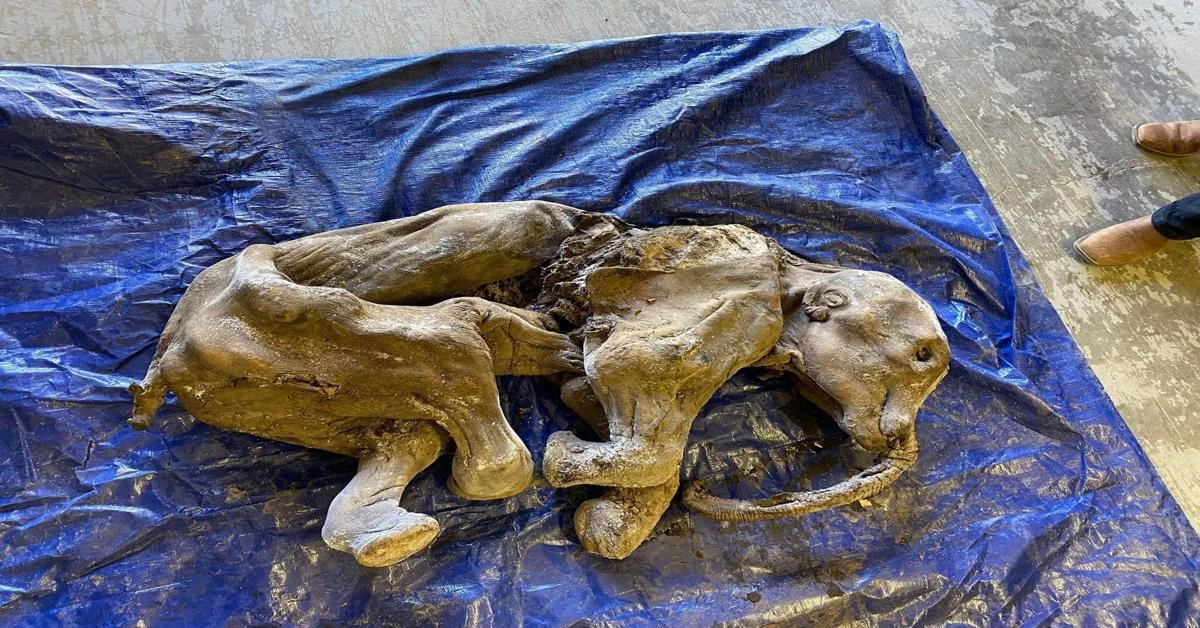Canada’s indigenous elders escort rare baby mammoth fossil to Ottawa for preservation

Canadian indigenous elders from Tr’ondek Hwech’in First Nation lead a historic journey to transport 30,000-year-old baby mammoth fossil called ‘Nun cho ga’ to Ottawa for preservation
After remaining frozen for an estimated 30,000 to 35,000 years, the baby mammoth ‘Nun cho ga’ is now on a significant journey from Dawson City, Yukon, to Ottawa.
Discovered by gold miners in 2022, this nearly perfectly preserved mammoth has sparked worldwide interest and symbolizes a deep spiritual connection for the local indigenous communities.
The Tr’ondek Hwech’in First Nation, whose traditional territory hosted this remarkable find, named the mammoth ‘Nun cho ga,’ which translates to ‘big child’ in the Han language.
This discovery is unprecedented in North America, making Nun cho ga the first whole baby mammoth found on the continent and the second in the world. The mammoth has intrigued scientists and resonated with the local Indigenous leaders, who view Nun cho ga as a spiritual ancestor.
A delegation of Indigenous elders is leading Nun cho ga’s journey to the Canadian Conservation Institute in Ottawa. This delegation, including First Nations heritage staff and Yukon government conservation specialists, is treating the transportation with the respect of a funeral procession, honoring the mammoth as a revered ancestor.
The collaborative efforts of the Yukon government and the Tr’ondek Hwech’in First Nation in transporting Nun cho ga emphasize the mammoth’s long-term preservation. While respecting the cultural and spiritual significance of Nun cho ga, this journey also represents a fusion of scientific interest and Indigenous traditions.
Source: Newsroom



